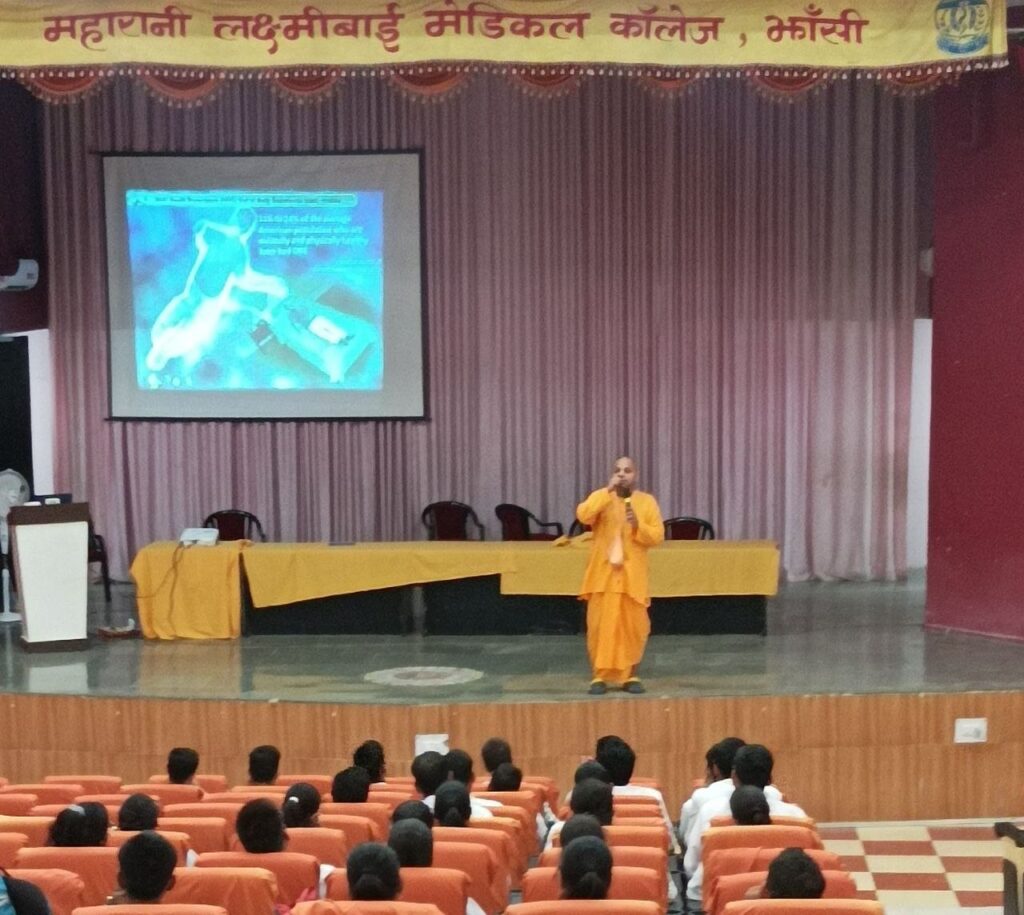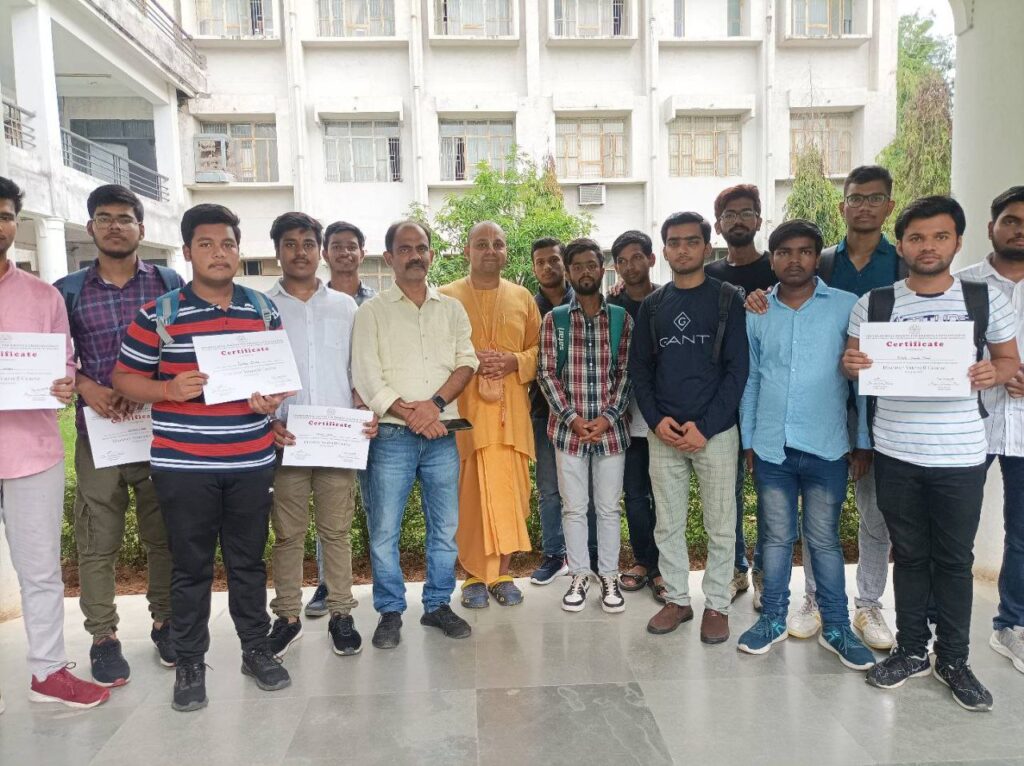Gita in Action
The Bhagavad Gita (“the Lord’s song”) is a dialogue between two extraordinary figures: Arjuna, a brilliant yogi as well as the general of a large army, and Krishna, the incarnated Lord of Life. As the Gita begins, Krishna has driven Arjuna’s war chariot to the center of a great battlefield, and there Arjuna surveys a vast assemblage of soldiers—his own army and that of his adversaries, both massed to fight a wrenching civil war. But at the sight of revered teachers and cherished family members in both armies, Arjuna is overwhelmed. He slumps to the floor of his chariot, not sure if he should fight or not. Turning to Krishna for advice, he pleads, “Whatever is definitely better, do tell me that.” Krishna’s reply ranges over the entire compass of worldly and spiritual life, echoing powerfully to the present day.
Turning to Krishna for advice, he pleads, “Whatever is definitely better, do tell me that.”


In spite of its surpassing majesty and drama, however, first-time readers of the Gita often find it perplexing. Extracted from a much longer epic—the Mahabharata—it offers few clues to the events leading to Arjuna’s crisis.
Suppose that you are the gardener in your family. You enjoy being outside, working with plants, and your happiness in your work has produced a bounty of flowers and vegetables. One day, midway through the summer, it occurs to you to enter your garden in the local gardening competition—a chance to win recognition for yourself and your family. The winner’s prize, you muse, would also be a pleasant reward for your season-long efforts. So with these thoughts you begin spending more and more time in the garden, and less and less time with your family. You become increasingly preoccupied with creating a garden that is better than the others in your neighborhood. Without intending it, you have come to equate your work with winning the gardening contest. The thought of prize money lingers in your mind—the joy of gardening drifts farther and farther away. You are now motivated by the fruits of your actions, but not by the actions themselves.
¨Action = result¨ is not the same as ¨action to result:” When we equate actions with results, our focus strays. We blur the distinction between what is to be done and what is to be gained. We begin to motivate ourselves by working for results—and according to Krishna, we sow the seeds of trouble. We lose the sense of living and acting in harmony with the moment. We step away from yoga.
When we equate actions with results, our focus strays.
